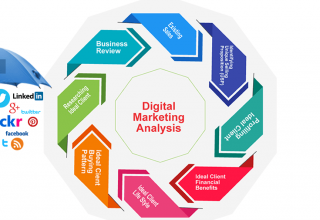
greatest and most fulfilling business consultancy ever carried out in my life is between my mum and myself. Not because of the amount she pays me, because she hardly does it anyway. The best I have ever gotten is a cup of tea. It isn’t also because of easiness. Actually, it is so tasking, taking different forms, at times over our cell phone conversations, and rarely in one sitting. What is fulfilling is that it is so inspirational to have business discussions with her, she does not question a lot of things, and most times she never fails when anchored on it.
My last session was very interesting, touching on where the rubber meets the road. She runs a retail store essentially stocking fast moving consumer goods in a rapidly growing town, housing transit and logistics employees. Of late she has been experiencing a swift surge of expenses associated with utilities, delivery of goods, spoilage and other minor costs. This has really eaten into her bottom lines, such that despite enormous training on sales-profitability analysis, she felt that something was wrong.
Depending with business cycles, at times business people are faced with the challenges of controlling or rather keeping expenses low. Many times you would hear of cost management meetings in board rooms, equally decisions made to eliminate some costs while reducing on others. Austerity measures have been applied across the world by countries, government companies and private institutions, sometimes resulting into layoffs, riots and even disgruntled staff. Most times however, they bear fruits resulting into very strong bottom lines and a very sustainable profitability position.
On another scale, for small and medium enterprises, the model seems not to follow the same path all the times. Here are some of the suggested ways a small business can keep expenses low:
Stock what moves
For a business person, assets that earn you income on sale matter a lot. A shopkeeper is not rich by how much stock they keep, but how fast that stock moves. Inventory in the store is exposed to theft, spoilage and even the cost of storage anyway. A new technology of Just In Time may not work for all types of businesses but appreciating that, ‘you only keep what you can easily dispose’ is a key thing for a vendor.
Pass the cost
Retail stores are very good in this. One ensures that the total cost of a product includes delivery to the point of sale. A supermarket manager looks at the cost of bread including delivery to the shop floor instead of collecting from the manufacturer’s floor. Of course that takes care of the issue of maintaining a fleet that would also be costly to manage, including repairs and staff to operate it.
Seal the leakages
If as a business person you do not put in controls for cost management, leakages will probably occur. This could be due to refund claims for money spent on trips, procurement mismanagement and other similar avenues. Control systems, no matter how small, are key to success in cost control.
Remember if you do not plan to manage cost, you plan for cost to manage you!

















